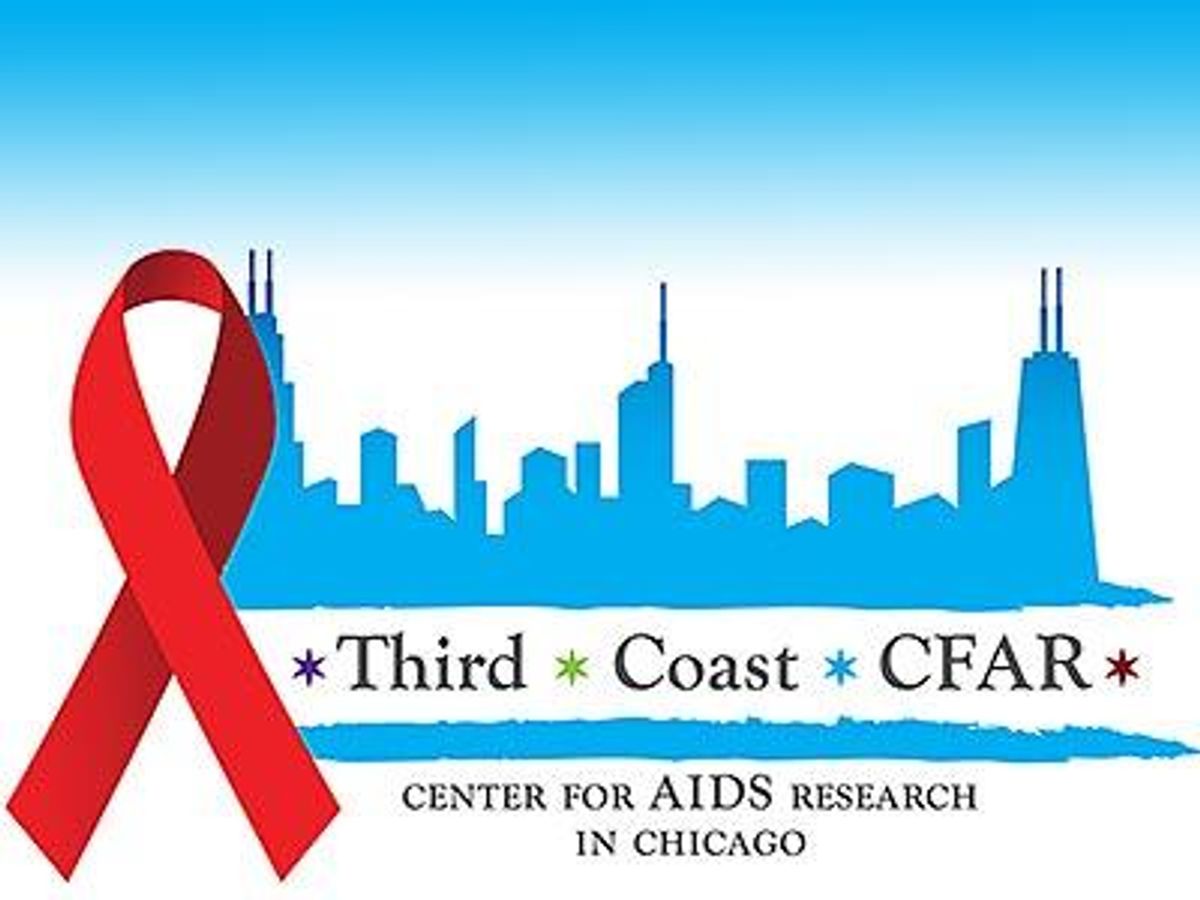With a five-year, $6.25 million grant from the National Institutes of Health, the city of Chicago has launched a new HIV research consortium.
The funding, from the National Institute of Allergy and Infectious Diseases (NIAID), supports the creation of what will be called the Third Coast Center for AIDS Research, a partnership between Northwestern University, the University of Chicago, the Chicago Department of Public Health, the AIDS Foundation of Chicago, the Alliance of Chicago Community Health Systems and the Center on Halsted, Chicago's LGBT Community Center.
NIAID helps fund nearly two dozen Centers for AIDS Research (CFAR) around the country to promote cordinated and synergistic HIV research. By encouraging interdisiplinary collaboration and providing expertise, resources, and services not otherwise readily available, the CFARs hope to accelerate research into ending the HIV epidemic.
"The idea behind a CFAR is to provide the glue that brings all different disciplines together," Dr. Richard D'Aquila explained in a press release. "This creates an infrastructure for catalyzing new interdisciplinary grants, services in different content areas of HIV research and seed funding to help new, young investigators and those established in other fields who want to start moving into HIV research for the first time."
A professor of infectious diseases at Northwestern University Feinberg School of Medicine, D’Aquila will serve as the Center’s co-director. Even before the proposed center received funding, D'Aquila and his colleagues began connecting clinical and behavioral researchers with engineers and biologists. That work has already paid off, as the multidisciplinary team they helped put together was recently awarded a $17 million NIH grant to build a drug delivery system for preventing HIV.
A major goal for the Third Coast CFAR is facilitating research to end the HIV epidemic among Chicago’s young gay and bisexual men, a demographic which continues to see a five percent increase in new HIV diagnoses each year.
D’Aquila also said the Third Coast Center is well positioned, having the advantage of members who are “national leaders in studying the health of this population.” For example, Third Coast CFAR co-director, Brian Mustanski, who is an associate professor of medical social sciences and director of the IMPACT LGBT Health and Development Program at Northwestern, is actively involved in community-engaged research focused on sexual and gender minority youth.
"The Third Coast CFAR has a special focus on reducing the very high rate of new HIV infections among sexual minority young men by catalyzing partnerships and new research that combines the best elements of behavioral and biomedical science across the continuum of prevention to care," says Mustanski. "We will focus on scientific discovery and implementation of approaches to preventing new infections, increasing the proportion of young men who know their HIV status and expanding the benefits of highly effective medical care among those who are HIV positive."
Each year, the NIH funds a number of research projects at the various Centers for AIDS Research around the country. This year, two faculty from the Third Coast CFAR were chosen for funding: Gregory Phillips, a research assistant professor of medical social sciences at Northwestern, and Brandon Hill, executive director of the Center for Interdisciplinary Inquiry and Innovation in Sexual and Reproductive Health at the University of Chicago. Hill and Phillips will lead separate research teams studying aspects of the epidemic among young men who have sex with men.
"To be right at the starting gate and to get not just one, but two of these very competitive national awards is a huge achievement," said D'Aquila, who is also director of the Northwestern Medicine HIV Translational Research Center.
The Third Coast CFAR will consist of five separate “cores” that will provide specialized services.
A Clinical Sciences Core will establish an archive of data and specimens people who have been recently diagnosed with HIV. A Behavioral, Social and Implementation Sciences Core will provide training, consultation services and tools for those studying at-risk populations. A Viral Pathogenesis Core will include basic science resources and services for virology, immunology, cell/virus imaging and other biological HIV research. A Developmental Core will provide funding and mentoring to those new to HIV research, including awards for pilot projects and community partnerships. An Administrative Core will oversee operations, hold events and assemble new collaborations between investigators.
The center will also have a scientific working group for sharing ideas, discussing epidemic trends and identifying innovative strategies to tackle HIV. The Third Coast CFAR plans to open services to any HIV researcher in the Chicago area collaborating with a Third Coast CFAR partner.
"Our ultimate goal is to stop the ongoing spread of HIV that is now under the public's radar," D'Aquila concluded.



































































